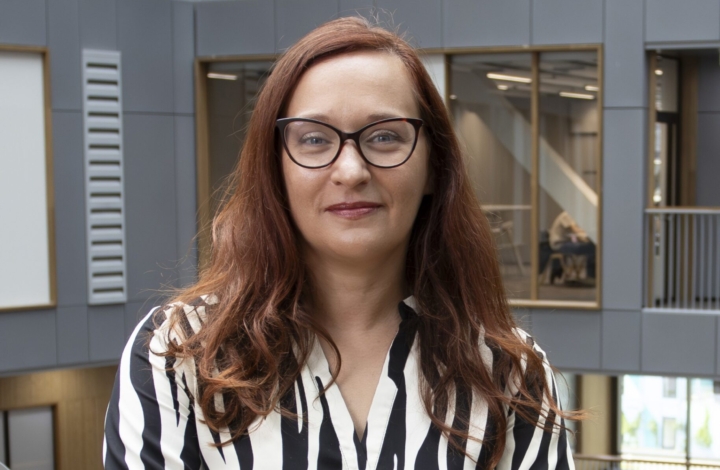Catarina Dutilh Novaes
Distinguished NIAS Lorentz Fellow

Project title
Towards a counter-colonial epistemology and philosophy of science
Research question
Dutilh Novaes will investigate colonialist legacies in current theories and practices of scientific knowledge, and how they can be countered and mitigated from within.
Project description
Universities and learned societies are increasingly reflecting on their colonial past. Many of the knowledge practices and institutions that shape (post-)industrial societies today were forged in the context of European colonial expansion during the modern era. For decades, intellectual movements such as postcolonial and decolonial theory have examined how these colonial legacies continue to shape contemporary knowledge. Yet their insights have had limited impact on the day-to-day practices of science and have not been fully absorbed by fields that theorise about science, such as the philosophy of science and science and technology studies.
Professor Catarina Dutilh Novaes will develop a novel conceptual framework to address the imprint of colonialism on scientific practices. Drawing on feminist epistemology and philosophy of science, she will examine whether, and if so how, knowledge practices and methods can be reformed from within to counter colonial assumptions and practices. In doing so, her research aims to open up alternative ways of producing (scientific) knowledge.
Selected publications
Books
- Reason and Power in Argumentation (expected in 2025/26)
This book presents the main findings of my ERC Consolidator project ‘The Social Epistemology of Argumentation’ (2018-2024). By analyzing how reason and power interact in argumentative processes, the book offers an in-depth analysis of the complex relations between power and knowledge. - The Dialogical Roots of Deduction (2020)
This book presents the main findings of my VIDI project ‘Roots of Deduction’ (2011-2018). It engages extensively with a wide range of disciplines, including psychology, cognitive science, mathematics education, history, philosophy, and mathematical practice to investigate deductive reasoning. The book won the 2022 Lakatos Award, and has been well received in various disciplines (in particular mathematics and mathematics education). - The Cambridge Companion to Medieval Logic (2016)
This co-edited volume (with Stephen Read) represents the culmination of my research on medieval logic (which started with my MSc thesis). It also showcases my interest in history of ideas and historiography, which is relevant for the issue of colonialism in the history of science.
Articles
- Anttila, Solmu and Dutilh Novaes, Catarina (2024). Critical Social Epistemology and the Liberating Power of Dialogue. In Waldomiro Silva Filho (ed.), The Epistemology of Conversation, 239-262. Springer.This paper engages extensively with one of the most important contra-colonial thinkers of the 20th century, namely the Brazilian philosopher and education scholar Paulo Freire. It was written with a PhD candidate under my supervision.
- Dutilh Novaes, Catarina (2023). Can Arguments Change Minds? Proceedings of the Aristotelian Society 123 (2): 173–98.This paper is published in the prestigious journal Proceedings of the Aristotelian Society, and presents in an accessible way (by means of real-life examples) the main model developed during my ERC project, the ‘argumentation as epistemic exchange’ model.
More about myself
NIAS fellowship 2016: The Roots of Deduction
Research Question
What exactly is going on when we conclude that Fido must be an animal solely from the information that Fido is a dog and all dogs are animals? Such inferences are known as deductive inferences, and despite their apparent simplicity raise a range of philosophical and cognitive issues.
Project Description
The goal of the project is to investigate the ‘roots’ of deductive reasoning: the historical development of this kind of reasoning, how it is implemented within human cognition, and what grounds the correctness of deductive reasoning. The main hypothesis of the project is that deductive reasoning is best understood from a dialogical perspective. A deductive argument would correspond to a dialogue between two fictitious characters: the person wishing to establish the conclusion, given the presumed truth of the premises, and an interlocutor who will not be easily convinced and will bring up objections, counterexamples, and requests for further clarification. This approach is in contrast with most other conceptions of deduction, which view deductive reasoning as a solitary, inner mental process.
Selected Publications
- C. Dutilh Novaes 2007, Formalizing Medieval Logical Theories – Suppositio, Consequentia and Obligationes. Berlin, Springer.
- C. Dutilh Novaes 2012, Formal Languages in Logic – A Philosophical and Cognitive Analysis. Cambridge University Press.
- C. Dutilh Novaes 2013, “A dialogical account of deductive reasoning as a case study for how culture shapes cognition”. Journal of Cognition and Culture 13, 453-476.